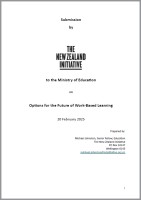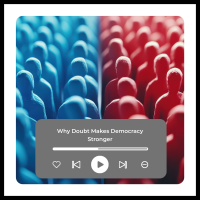
Submission: Options for the Future of Work-Based Learning
1. INTRODUCTION AND SUMMARY 1.1 This submission on Options for the Future of Work-Based Learning is made by The New Zealand Initiative (the Initiative), a Wellington-based think tank supported primarily by major New Zealand businesses. Read more














